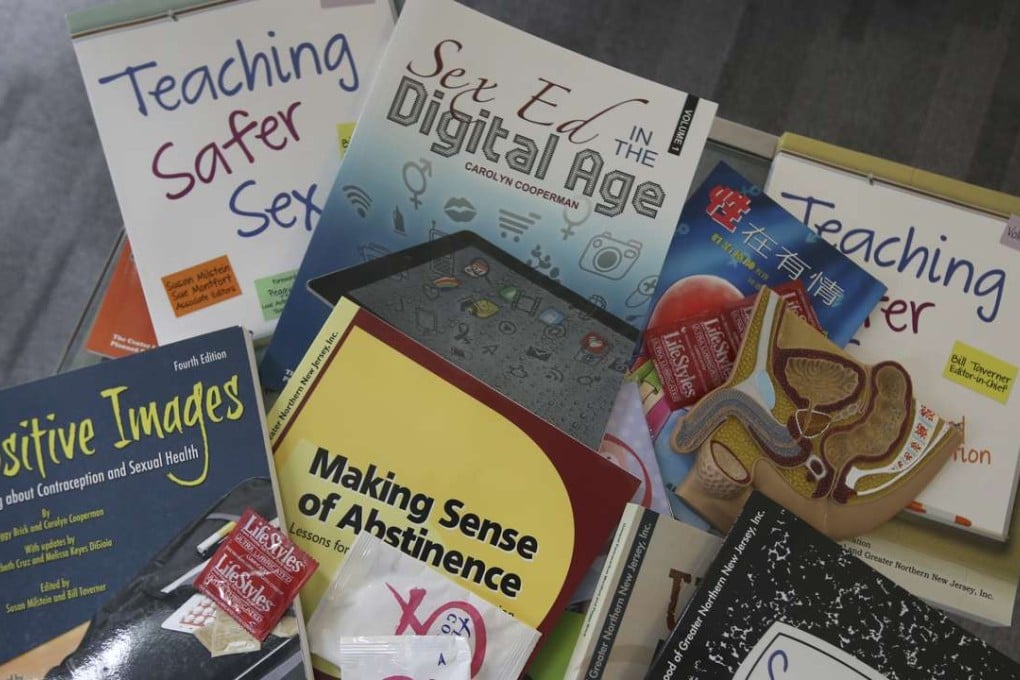Hong Kong’s sex education crisis: why people turn to sex workers for knowledge
Deeply ingrained prudishness has bred widespread ignorance of how to have pleasurable sexual relationships; a sex worker group has stepped into the breach, and found its workshops oversubscribed

A middle-aged man thought he had a medical problem because he couldn’t hold himself back any longer after half an hour of lovemaking. A tiny picture of a woman’s private parts in a textbook for final-year high school pupils elicits shock from parents and students alike. Teachers used to order pupils to tape shut the chapter in school textbooks about reproduction.
No wonder, then, that men and women in Hong Kong are turning to sex workers for tips about lovemaking – and that workshops one sex workers’ group recently held were oversubscribed.
“There’s no place to learn about sex. Only people like us with thick skins can talk about this,” says Jenny, a sex worker who led the workshops. “Nothing you ask or say will make us blush.”
The same cannot be said for one university social work student, who walked out of a talk by another sex worker, Ben, when he used slang terms to describe acts common in foreplay.
“As soon as I talked about fingering a woman, s**king d**k, a student complained about me. They asked their instructor to tell me to use proper language, saying I shouldn’t swear,” says Ben.